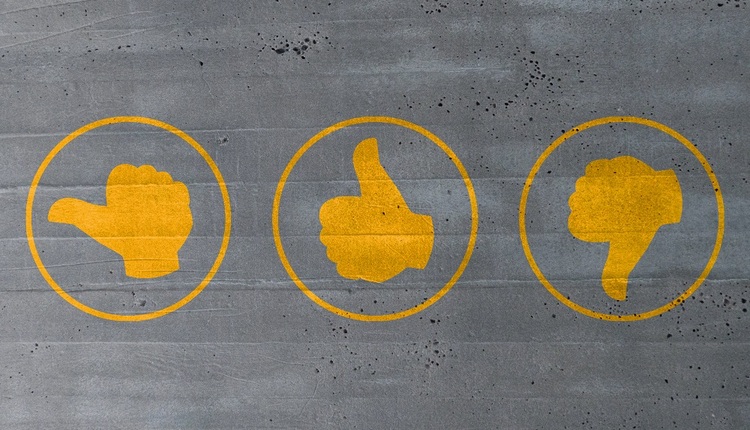As technology changes the face of fulfillment and distribution, two very important trends have emerged: the need for increased speed in the packaging process and the call for more flexible packaging solutions. Henry Schein, a $2-billion company that operates four major regional distribution centers throughout the United States and serves 400,000 customers in 15 countries, is all too aware of these trends. An integral part of Henry Schein�s process is to provide its customers with overnight service; therefore, speed in both the fulfillment and distribution stages is of the utmost importance.
Henry Schein�s mission is �to be the worldwide leader in providing the best quality and value in products and services for our customers.� It is a very clear statement from the premier supplier of products to office-based health care practitioners in the medical, dental and animal health care marketplaces, yet the actuality of achieving this goal takes extreme precision, planning and deep reliance on trusted partners. One of the partners that Henry Schein relies on is Sealed Air Corporation.
Volume Demands Expansion
Henry Schein�s distribution facility based in Denver, Pennsylvania, is the regional distribution center for the company�s Northeast operations. The highly automated Northeast distribution center ships out a massive 13,000 to 14,000 cartons per day, which means paying careful attention to every aspect of the supply chain. Prior to Denver, the Northeast distribution center was located on Long Island, New York until the volume of business necessitated a larger operation. When the company moved to the new facility in Pennsylvania, it brought Sealed Air with it to continue to serve as a strategic partner.
According to Don Roden, director of operations for the Northeast distribution center, �When we moved to the new facility, we brought the packing solutions we thought were best able to protect our customers� products.�
Henry Schein�s products are made up of anything from heavy medical equipment to sensitive vials of medicine to dog collars for veterinarians. The variation in the size, shape and weight of the products can cause packaging challenges. If extremely different sized objects are packed in the same box, then the packaging material must be flexible enough to protect the incompatible box components.
Business Requires Speedy Processing
Another vital aspect of Henry Schein�s automated distribution process is speed. Today, this is more important than ever. With the current environment of e-commerce and technology enhancing traditional systems, orders can be taken very rapidly. Orders are received in various ways such as through telesales, faxes, representatives in the field and increasingly, online. As orders come in more quickly, it is necessary to have a fast, efficient packaging system to keep up with high demand. Henry Schein turned to two of Sealed Air�s solutions to address these issues.
Packaging to Meet System Demands
Sealed Air�s Fill-Air inflatable packaging system is used throughout Henry Schein�s Northeast distribution center to completely protect packages with unique contents or irregular configurations. Because Henry Schein accommodates customer demands for loose pick products, this flexible packaging is of paramount importance.
The Fill-Air inflatable packaging system produces a continuous perforated chain of air-filled cushions that can be easily torn off and inserted into cartons for fast, high-volume void-fill packaging applications. This system provides efficient, lightweight, air cushion packaging that is well suited for packages with pockets of void space. Differing cushion sizes can be generated by the system operator on command, if required.
Sealed Air�s SpeedyPacker foam-in-bag packaging system meets the needs for speed. Henry Schein uses the foam-in-bag packaging systems in three of its four regional distribution centers. Instapak foam-in-bag cushions are dispensed from a SpeedyPacker foam-in-bag packaging system, which provides another level of flexibility. These foam-filled cushions can be created in a variety of sizes and are used for void fill, cushioning or blocking and bracing. The operator of the system determines the proper size bag to use and adjusts the machine accordingly.
Both systems are appreciated by the line operators. Packaging operators in the old facility on Long Island had used various methods of packaging including loose-fill peanuts. According to Henry Schein, the operators in the Long Island facility preferred using Sealed Air products over other methods since they were much quicker and caused less mess.
Line operators are not the only ones who appreciate the packaging systems, customers do as well. Doctors, dentists and veterinarians have told Henry Schein that finding products in cartons with loose-fill is difficult, especially small items. With air cushioning and foam-in-bag packaging, it is much easier to locate products within a carton, and small items aren�t easily overlooked.
In another effort to achieve cost efficiency without sacrificing quality, Henry Schein turned its attention to mailers to reduce the number of cartons in storage. Henry Schein uses Sealed Air�s Jiffylite air cellular cushioned mailers. These mailers are used for single line, smaller orders in lieu of a small carton. With the switch to the mailers, Henry Schein was able to eliminate 3% to 5% of the cartons it was using, which in turn greatly increased storage space.
�Switching from cartons to mailers made a considerable impact on cost reduction and space savings,� says Roden. �Using mailers greatly cuts our freight costs along with saving us money in material handling.�
Another Sealed Air product that Henry Schein largely relies on are Bubble Wrap bags. These bags are primarily used to wrap fragile bottles and vials of medicine. Henry Schein�s Northeast distribution center carries four different sizes of bags that provide quality cushioning protection for sensitive items.
Partnership Drives Growth
As we move into the next century, technology continues to change the face of fulfillment and distribution, which in turn greatly impacts packaging. Already the explosive growth of e-commerce has driven the need for more flexible packaging with a demand for speed. To meet these needs, Henry Schein turned to its reliable partner, Sealed Air, who effectively provided the company with varied packaging solutions to help keep the company true to its mission statement.
�We at Henry Schein would like to continue our association with Sealed Air and move into the future together,� states Roden. �Working with Sealed Air is truly a partnership, whether it is providing product or helping solve packaging issues, it is a very positive relationship.�
Scott Douglas is systems product manager of the Packaging Products Division. He may be contacted at 800-648-9093. Tom Windisch is Instapak product manager of the Engineered Products Division and can be contacted by phone at 203-791-3500. For more information, please call 800-229-4539 or visit www.sealedair.com










